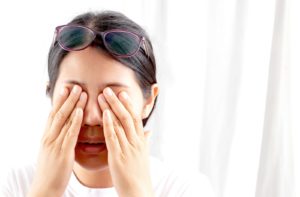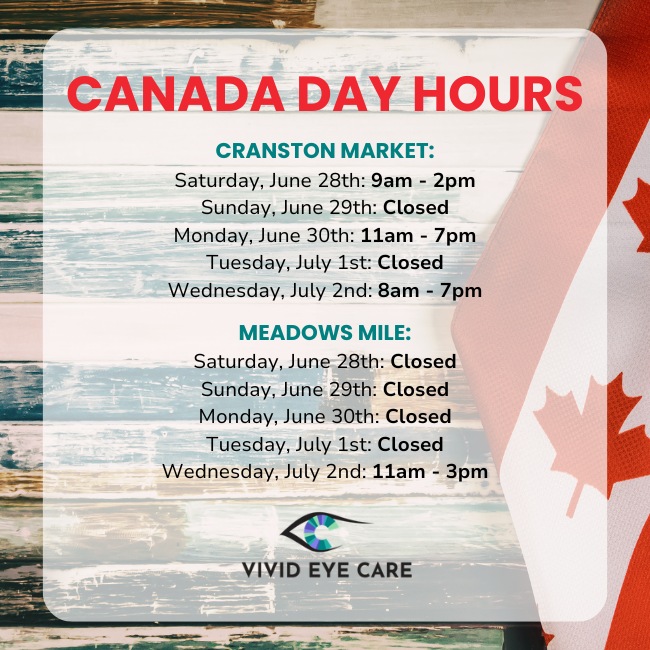Does Rubbing Your Eyes Cause Floaters?
Causing Eye Floaters
Spotting an object floating across your vision can be a startling experience. It won’t go away, but is it harmful? Eye floaters can be a symptom of multiple eye conditions. Most floaters are harmless, but they can sometimes indicate an eye emergency.
A floater may seemingly appear out of the blue without an obvious cause. You may also notice a floater appear after eye trauma, including eye rubbing. But was it rubbing that caused the floater? Or is there another reason?
What Are Floaters?
Eye floaters are shapes that appear in your vision. A floater can be a singular object or multiple, usually looking like flecks, spots, dots, circles, cobwebs, or lines. The object, opaque or translucent, often floats around the edges of your vision, making it difficult to focus on when you try to look at it directly.
It may seem like the floater is drifting across or in front of your eye. But it’s inside your eye. Floaters are tiny flecks of protein and particles suspended in the vitreous layer of your eye. The vitreous (vitreous humour) is a translucent, gel-like layer that allows light to more easily reach the retina.
The protein and particle deposits can form for a few reasons:
- Naturally before birth (generally harmless, like a birthmark)
- Deteriorating vitreous fluid resulting from aging
- Deteriorating vitreous fluid resulting from injury or disease
The floaters, or protein deposits, can sometimes seem translucent because it’s not the object you’re seeing but its shadow as it moves across the retina. The retina (located at the back of the eye) receives light. It translates light into electrical signals through the optic nerve. We can then perceive the signals as images or vision.
Eye floaters can sometimes occur when the vitreous pulls away from the back of the eye, resulting in a posterior vitreous detachment. When floaters form due to trauma or an eye condition, it can indicate worsening symptoms, including a torn retina or retinal detachment.
The Problem with Eye-Rubbing
Rubbing your eyes can sometimes be a reflex, an action you don’t think about or forget about a moment later. You may rub your eyes because of irritation, such as allergies, dry eyes, or feeling like something is in your eye. However, eye-rubbing often does more harm than good.
The rare, gentle eye rub may or may not cause symptoms. But rubbing frequently or too hard can damage your eye, particularly the outer layers such as the lens and cornea. Some symptoms indicating trauma or problems after eye rubbing include:
- Eye pain
- Blurry vision
- Eye fatigue
- Light sensitivity
- Inflammation
- Irritation/redness
- Headache
- Nausea
- Reduced vision
If you notice vision changes or symptoms after rubbing your eyes, call us immediately for an emergency eye care appointment.
Rubbing your eyes means touching your eyes and surrounding area, introducing bacteria and infections. For example, pink eye (conjunctivitis) is easily spread by touching your eyes.
Chronic eye rubbing is associated with some severe eye conditions. It can worsen underlying eye conditions, including irregular astigmatism, glaucoma, keratoconus, and retina problems. Additionally, it can disturb the vitreous layer, potentially causing eye trauma.

Can Rubbing Your Eyes Cause Floaters?
Yes, rubbing your eyes can cause floaters. Eye-rubbing causes eye trauma, including harm to the vitreous layer (which contains the floaters). But eye-rubbing isn’t the only reason floaters exist. Plus, floaters aren’t the only reason eye-rubbing is concerning.
It can be harmful to dismiss floaters as minor annoyances after a moment of eye-rubbing. Although you may not experience further symptoms or eye complications, an eye exam can rule out additional problems.
An eye exam is also a chance to learn why you’re rubbing your eyes, such as a response to eye irritation or allergies. You may be experiencing inflammation or redness as a symptom of an eye condition. Evaluating your eye health can help you find treatment and break bad eye hygiene habits.
How to Stop Eye Rubbing
Now that you know rubbing your eyes frequently or too hard can be harmful, how can you break the bad habit? There are many tips for success when disrupting unhealthy habits, such as:
- Knowing your triggers
- Practicing mindfulness
- Replacing with new (healthier) habits
- Visualizing stopping the action
- Rewarding yourself after success
- Enlisting help (friends, family, etc.)
It’s also crucial to book an eye exam. If an eye condition is causing the problem, we can assess your eye health and offer options for treatment. Then, when your eyes feel better, it may reduce the urge to rub or touch your eyes. For dry eyes or allergies, we might prescribe eye drops or medications to improve eye comfort and help eliminate the cause of eye symptoms.
Contact Us for Better Eye Habits
Stopping eye-rubbing is an excellent start for improving habits for healthier eyes. An eye exam is a perfect resource if you’re looking for more eye health tips. We can evaluate your vision and health to recommend personalized eye care. So whether you’re curious about floaters or other eye questions, the Vivid Eye Care team has answers.
Book an appointment today for better eye habits.






















